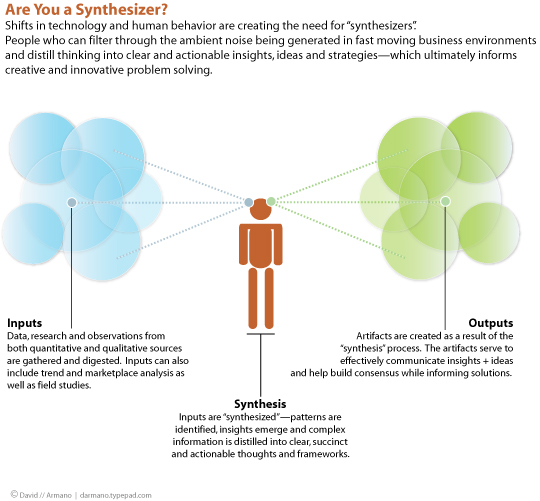|
I was delighted to be asked to speak at the British Sociological Association Presidential Event on The Challenge of Big Data for two reasons really. The first because my primary degree is in history and sociology and the second because the event was jointly organised with Warwick University where I did my post grad (Masters in Public Administration). My topic on the day was Access and Public Policy and while the focus was on big data I found myself revisiting what it was in the first instance that brought me into the whole area of open data and particularly the use of social media in government. It preceded any of the work done in City Hall where the push to open London’s data was informed by the dual threads of accountability and transparency as well as the economic opportunities that would open up for SME’s with data release. It was initially underpinned by the work of Dr Dave Snowden in Cognitive Edge and his Cynefin Framework which I was exploring when working in local government as Director of Strategy for Barnet Council. Along with Snowdens work around the power of narrative I was very taken with the work of the philosopher/sociologist Donald Schon and his description of the challenges facing any technical expert/policy professionals when they attempt to prescribe solutions of societal challenges particularly his description of “the swampy lowlands”. “In the varied topography of professional practice, there is a high, hard ground overlooking a swamp. On the high ground, manageable problems lend themselves to solutions through the use of research based theory and technique. In the swampy lowlands, problems are messy and confusing and incapable of technical solution. The irony of this situation is that the problems of the high ground tend to be relatively unimportant to individuals or society at large, however great their technical interest may be, while in the swamp lie the problems of greatest human concern. The practitioner is confronted with a choice. Shall he remain on the high ground where he can solve relatively unimportant problems according to his standards of rigor, or shall he descend to the swamp of important problems where he cannot be rigorous in any way he knows how to describe”. Schon goes on to describe the dilemma experienced by professionals who choose the swampy lowlands as their habitat of enquiry. When asked to describe their methods they speak of “experience, trial and error, intuition, or muddling through” in other words about as close as you can get to the idea of an MVP in policy terms. Policy in local government terms (and indeed at central government level) assumes that one should take the high, hard ground where solutions to messy problems like obesity, health and the allocation of scarce resources can be found through the use of research based theory and technique but as I said to the sociology delegates this assumes a model of rational man which in reality does not exist. We are all rather more like Homer Simpson than Dr Spock knowing as we say we are definitely going to go to the gym and lose some weight we are more likely to spend our evenings on the couch with a beer or two. It’s why parents during the Jamie Oliver School Meal heyday were hellbent on arriving at the school and delivering Burgers and Chips to their little ones through closed gates if needs be. As much as they might have admired the drive to get their children fit they override those feelings out of fear that in some way their children are being denied what they really want. It’s a human dilemma not always amenable to rational choice. David Armano cut to the core of what is required when in 2007 he described the idea of the synthesizer; This to me seemed to point the way to a new type of policy expert who might find a route to the swampy lowlands with the growth of technology and in particular social media. Digital artifacts that can express the lifeworld in emotions now exist all around us in data, in networks, on social platforms so it seemed a no brainer to me that government might seek to use this for good. To get close alongside its citizens and really understand needs, fears and concerns. Unfortunately for the longest time government at both local and national level have been slow to integrate the lifeworld into policy, choosing instead to use social media as a mechanism for broadcasting the same old technical solutions based on a “we know best ideology”. And perhaps the time for government to do this well and with integrity is passing with every day as the concerns of citizens switch to the scale of the surveillance agenda. Where once governments really listening might have been understood as a good thing there is a chance that baby will be thrown out with bathwater as governments attempt to explain why they feel a need to collect so much data about us, without our knowledge and our prior consent. This is true of course not only of governments but of big companies who profit from our data while knowing so much about our behaviours. But to attempt to define policy around the things that really matter, health, unemployment, obesity, drug abuse without the integration of data gathered from multiple sources will ensure that our policies are reflective only of that technical high ground. That which can be deduced from purely quantitative research. Of the many good questions that emerged from the floor at the BSA event was why the London Datastore contained lots of information about NEETS (youth not in education, employment or training) and so little about employment practices and the experiences of employees with different companies. Of course the data collected by government only reflects that in which IT is interested going back to the age old quandary of “are we measuring/collecting what matters”.
For an alternative approach the recent House of Lords speech by Martha Lane Fox speaks much more to what I believe. A citizen of the lifeworld and the internet, a superb synthesizer herself, she understands that instrumental approaches like the “war on drugs” have not succeeded and new approaches are necessary. In the end it’s all about behaviour and understanding the forces that drive us as human beings, it's about how technology and data can be a force for good to bring about the fundamental changes that are necessary to achieve a more just society. That’s what drove my interest in data in the first place and I’m thankful to the BSA for giving me the opportunity to reflect on that.
1 Comment
|
Details
Categories
All
Archives
August 2023
|


 RSS Feed
RSS Feed